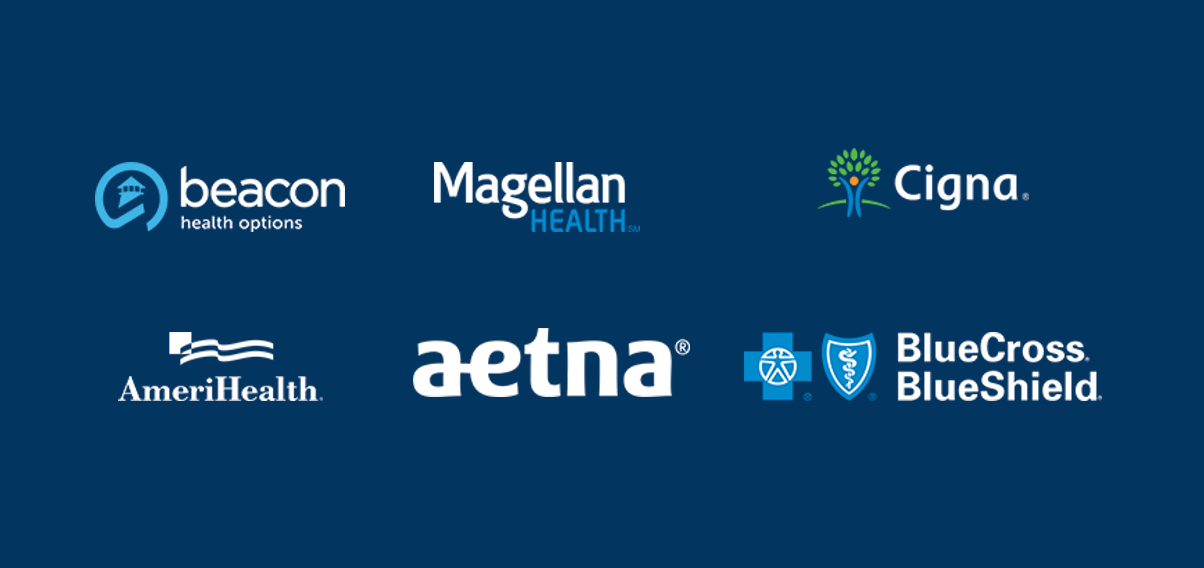The Sylvia Brafman Mental Health Center in Fort Lauderdale, Florida, specializes in evidence-based treatment for Obsessive-Compulsive Disorder (OCD). Located in Broward County and easily accessible from Miami and other major cities, our center is well-known for quality care and patient support. Call us below, and an experienced patient advocate will discuss our obsessive intrusive thoughts treatment options.

OCD Intrusive Thoughts Treatment Facility in Fort Lauderdale, Florida
What Is OCD?
Obsessive-Compulsive Disorder (OCD) is a mental health condition characterized by persistent intrusive, obsessive thoughts and compulsive behaviors. Compulsive behaviors are repetitive actions you feel driven to perform in response to anxiety. These might include excessive cleaning or compulsive checking to alleviate distress or prevent feared outcomes. Obsessive thoughts are unwanted thoughts, images, or urges that cause intense fear.
Currently, OCD affects 1-2% of people in the United States, with a slightly higher prevalence among women. OCD symptoms can begin in childhood, adolescence, or early adulthood. However, the causes of OCD aren’t completely understood. Research suggests that a mix of genetic, biological, and environmental factors likely play a role. For some, OCD may run in families, indicating a genetic predisposition. Changes in brain chemistry, particularly with serotonin levels, are also thought to contribute to OCD symptoms, affecting how the brain processes fear and anxiety.
Life experiences, like trauma or stressful events, can induce obsessions and compulsions, as well. These experiences might amplify obsessive thoughts and compulsive behaviors, creating a cycle that’s hard to break. Knowing the potential causes can make it easier to seek the proper OCD and intrusive thoughts treatment to address symptoms and underlying factors. Early intervention can help you or your loved one work toward lasting relief from OCD.

What is an OCD Intrusive Thoughts Treatment Center?
An Obsessive-Compulsive Disorder (OCD) treatment center is a specialized healthcare facility dedicated to providing comprehensive care for individuals struggling with OCD. The Sylvia Brafman Mental Health Center utilizes evidence-based treatment for OCD intrusive thoughts therapy. Methods include cognitive behavioral therapy for intrusive thoughts, Exposure and Response Prevention (ERP), and medication management to meet your particular needs.
Our professionals deliver personalized outpatient care tailored to you. Our centers are equipped to offer the necessary tools and treatment for intrusive thoughts to help you effectively manage your symptoms and improve your quality of life. Optimal mental health and OCD care is a phone call away. To learn more about our OCD intrusive thoughts treatment, don’t hesitate to get in touch with us today.
What Are Common Treatment Programs for Intrusive Thoughts?
There are several common OCD intrusive thoughts treatment programs. The Sylvia Brafman Mental Health Center can provide a confidential, free assessment with one of our licensed clinicians to determine the most suitable level of intrusive thoughts OCD treatment tailored to your needs. The following are a few examples of common treatment program options, but they are not an all-inclusive list.

At The Sylvia Brafman Mental Health Center in sunny Fort Lauderdale, Florida, our compassionate team is eager to help you with specialized treatment for OCD with intrusive thoughts. We have a broad spectrum of treatment programs including IOP and PHP. Don’t hesitate any longer, connect with us today! You can both contact us directly or fill out the form below for a prompt callback.
"*" indicates required fields

What Are Common Therapy Techniques for OCD Intrusive Thoughts?
Therapy techniques to stop intrusive thoughts and cope can effectively manage the ensuing compulsive behaviors associated with OCD. Various types of counseling can help develop effective coping strategies to ease distress and aid in everyday functioning. Listed below are just some of the therapy techniques available in OCD intrusive thoughts treatment.

Does Insurance Cover OCD Intrusive Thoughts Treatment Programs?
Yes, most health insurance in the United States covers OCD intrusive thoughts treatment programs and services. The extent of the coverage, deductibles, co-pays, and the types of treatments for intrusive thoughts covered can differ based on the insurance plan. Understanding your benefits is crucial to seeking the proper care that aligns with your treatment needs and budget.
At The Sylvia Brafman Mental Health Center, our patient advocates can help you verify your insurance details. Call 877-958-9212. We can provide specifics on our obsessive intrusive thoughts treatment programs and how your particular policy applies.
Insurance Providers in Florida That Cover OCD Intrusive Thoughts Treatment
Many insurance providers in Florida cover OCD intrusive thoughts treatment. Florida Blue (Blue Cross and Blue Shield of Florida) is the largest health insurer in the state, with multiple coverage options, including options for individuals and families under the Affordable Care Act (ACA). Oscar Health and Cigna are also providers with an extensive network in Florida.
Additionally, The Sylvia Brafman Mental Health Center treats many out-of-state patients. The New York State Health Insurance Program (NYSHIP), the Government Employee Health Association (GEHA), and Meritain Health are just a few regional and national insurance providers we accept. Contact us today to check if your insurance plan is accepted at our Florida-based OCD intrusive thoughts treatment center.

How to Find Intrusive Thoughts Treatment Facilities in Florida
The Sylvia Brafman Mental Health Center at 7710 NW 71ST CT, Tamarac, Florida, 33321, is an accredited OCD intrusive thoughts treatment center. We’re known for our exceptional support and commitment to evidence-based, family-centered programs that address mental compulsions at their root. Contact us to learn more and forge your path to recovery today.
As part of our commitment to adult mental health care in the Sunshine State and beyond, we’ve compiled a step-by-step guide on how to find treatment for intrusive thoughts.

How Much Does OCD Intrusive Thoughts Treatment Cost?
Treatment costs for Obsessive-Compulsive Disorder (OCD) vary depending on the treatment method, length of treatment, and insurance coverage, among many other factors. A single therapy session, for example, averages between $100 to $250 without insurance coverage. In addition, inpatient care will be costlier than outpatient treatment for OCD intrusive thoughts.
For a more accurate estimate of OCD intrusive thoughts treatment costs, contact The Sylvia Brafman Mental Health Center in South Florida. We can provide details as they relate to your treatment needs, including expenses for specialized therapy and medication for OCD.
What is the Intrusive Thoughts Treatment Admissions Process?
The intrusive thoughts treatment admissions process is structured to ensure you receive personalized care for managing OCD intrusive thoughts. Remember that taking this step is a profound move toward a healthier life, free from the constraints of intrusive thoughts. While the process can vary from one treatment center to the next, below we’ve provided a general overview for your consideration:
- Initial Contact: You can call The Sylvia Brafman Mental Health Center at 877-958-9212, fill out the contact form, or visit our center in person. During this initial contact, you can express concerns, ask questions, and gather information about the available mental health and intrusive thoughts treatment options.
- Preliminary Consultation: We offer a free OCD assessment to discuss your symptoms, concerns, and treatment goals, helping the medical staff determine whether the program meets your needs.
- Intake Assessment: After the preliminary consultation, a comprehensive intake assessment is started. This can include an interview or completing forms covering your mental health history, current symptoms, and lifestyle, which helps the treatment team evaluate treatment options.
- Evaluation and Diagnosis: Mental health professionals will conduct a formal evaluation to identify specific diagnoses, such as OCD, anxiety disorders, or a dual diagnosis. This ensures the treatment plan addresses all relevant issues.
- Personalized Treatment Plan Development: Once an OCD diagnosis is established, the treatment team works with you to create a tailored treatment plan that outlines therapeutic approaches, goals, and expected duration.
- Insurance Verification and Financial Counseling: The financial team helps verify insurance coverage and discusses out-of-pocket costs, ensuring you understand your financial commitment.
- Admission Approval and Scheduling: After finalizing the treatment and financial arrangements, the team will schedule your admission date and provide pre-admission instructions.
- Admittance to the Program: On admission day, you will meet the care team, receive an orientation, and review your treatment plan, ensuring you feel comfortable and informed.
- Ongoing Monitoring and Adjustments: Your progress is monitored throughout the program, with adjustments made as needed to ensure adequate care. Regular check-ins help keep your treatment relevant as you work on managing obsessive thoughts.



